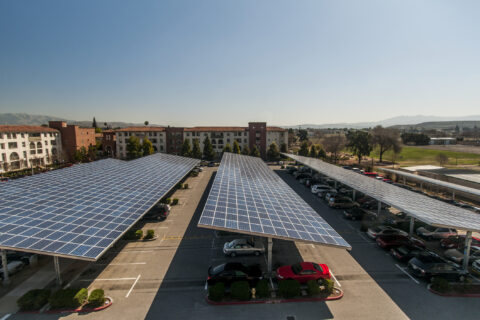With Congress still playing politics with COVID relief to cities and states, the deepest cuts from this pandemic are not showing on the stock market but on the Main Streets of cities and towns across America and their 2021 budgets. As the lost economic productivity during COVID-19 takes root, city and town finances headed into 2021 further reveal the negative fiscal impact of the pandemic. This continues to threaten cities’ ability to provide basic services to residents today, but also long-term capital investments in infrastructure, schools, parks and more. Their carefully built reserves are depleted from unexpected 2020 expenses, and with no deal on the horizon, cities and towns will need to make cuts that may sting for years to come.
Impact of Capital Cuts
Capital cuts are one of the common but consequential budget cuts. According to NLC’s Local Impact Survey, 65 percent of cities have been forced to delay or cancel capital and infrastructure projects as a result of these and other revenue losses. Given that local governments contract months and years ahead, this means that the cuts will start to reveal themselves to businesses that bid for work and their constituents in the months ahead. America has been lagging on infrastructure investments for some time, so the 2021 cuts will set them back further and possibly lead to more emergency repairs or temporary fixes.
Capital Cuts on Main Street America
For example, the fiscal year 2021 budget for Round Rock, TX reflects a $25 million decrease in overall spending compared to the year before. Despite these challenges, Round Rock is doing the best it can to make infrastructure investment a priority. For cities like Detroit, the future of downtown office space and work from home remains unclear, which adversely impacts current revenue streams without a clear sense of when or if those revenue streams will return. This has led to a decrease of nearly 40 percent in large-scale construction projects being canceled, which will only worsen the economic outlook for the city. In fact, nearly 85 percent of Michigan cities say they plan on delaying or canceling infrastructure projects. For municipalities across the state of Michigan, NLC estimates a revenue loss over the next year of over $2 billion.
For municipalities across the state of Missouri, NLC estimates a revenue less of approximately $1.2 billion. The number of construction contracts awarded to companies in Kansas City alone decreased by more than 50 percent. However, these detrimental impacts are felt not only by larger cities like Kansas City, but also smaller municipalities like the Village of Claycomo, MO. Decreasing infrastructure spending due to revenue losses prevented the local community center from being upgraded. Although this loss is smaller in dollar value than canceled office building construction in Detroit, its detrimental impact is no less severe as the local community and businesses which are not being provided with contracts.
Local Revenue Slides in 2021
Cities face more than $80 billion in revenue losses in fiscal year 2021, which amounts a 13 percent decline in FY 2021 general fund revenues over FY 2020’s drop of 11 percent will have to continue to make tough decisions regarding what part of their budget stays and what part goes. Both sales tax and income tax receipts are expected to decline during 2021, since both are tied to employment and the general state of the economy. The compounding factors will add up to billions in revenue shortfalls. These revenue streams are directly tied to infrastructure spending, which limits cities’ ability to make the necessary investments crucial for stimulating the recession-laden economy.
A particularly pressing revenue concern for cities and towns across the U.S. is the travel changes, as COVID limited movement and impacted economic activity from work travel, vacations, visitors and so much more. As many companies and school children continue to work and learn from home, the impact adds up. Less commuting and driving means less gasoline taxes are collected to pay for road upkeep. Less corporate and vacation hotel stays translate to less bed tax revenues to pay for improvements, new development and infrastructure. Less foot traffic and commuting to downtowns impacts not only the businesses and restaurants but also changes the overall local sales tax collected substantially.

Congress Should Support Cities and Local Businesses
Direct federal action to support local governments is needed now more than ever, and that support will allow cities and towns to perhaps put some capital and infrastructure projects back into their budget, bringing local businesses and contractors new opportunities in 2021. The future economic health of our nation relies on fiscally strong cities, towns and villages, along with state and federal investments. Without them, the road to recovery and reopening will be long and tenuous.
Join Us in Partnering with COVID Relief Now
A new coalition of more than 200 major public and private sector groups across the U.S., and imploring Congress to not leave town for the 2020 elections without passing additional COVID economic relief.












